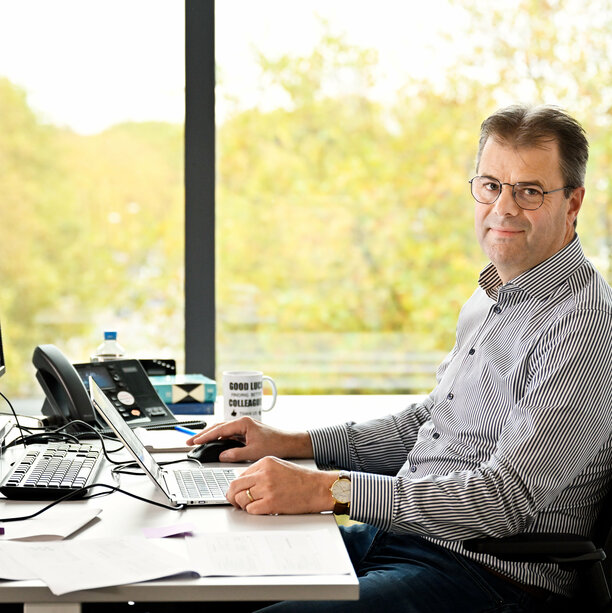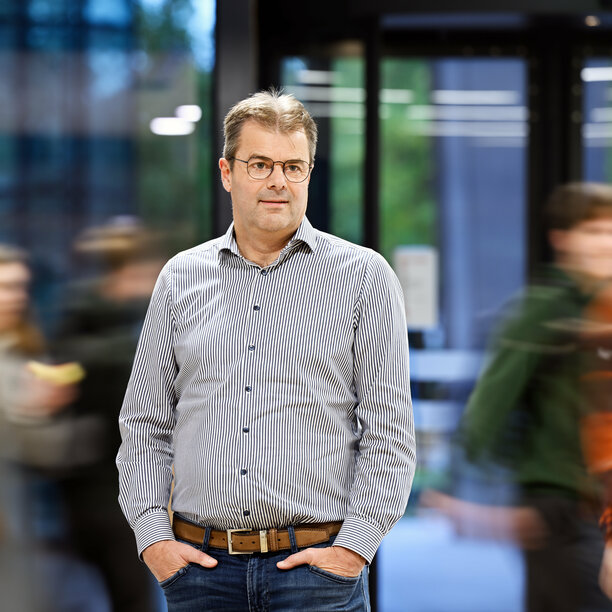'As dean, I want to be there for everyone in our department'
Interview with the new dean of IE&IS Geert-Jan van Houtum: “Cutting the Gordian knot isn't something I do alone; I do it with the departmental board.”
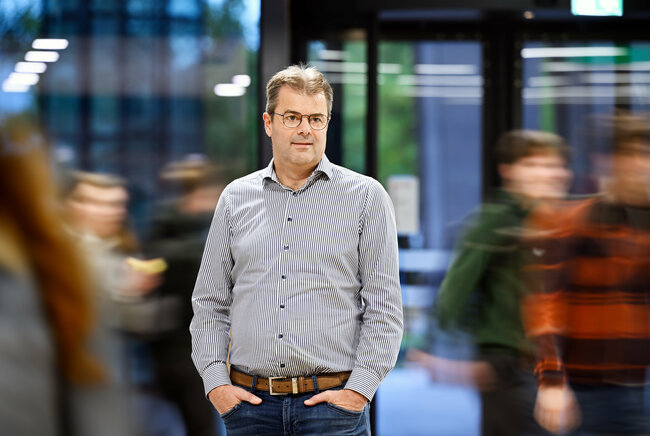
Geert-Jan van Houtum is feeling confident about the future. The new dean of Industrial Engineering & Innovation Sciences is pleased to see that increasingly his department - created from two schools - is becoming a single group. It's a positive trend that he is keen to continue. The falling student intake, by contrast, is an issue the new board will need to address.
Recently on LinkedIn, Geert-Jan van Houtum's colleagues jokingly asked him if they should start addressing him as ‘esteemed dean’. They were referring to his change of position. On October 1st, Van Houtum became the new dean of the Department of Industrial Engineering & Innovation Sciences (IE&IS). He was previously a vice-dean on the departmental board.
Recalling this question, Van Houtum laughs and shakes his head; he is simply Geert-Jan and that won't change, and he doesn't think of himself as ‘the boss’. “As a dean I want to be part of the group, someone whose office feels open and accessible. I'm not one for long words or a lot of fuss and bother. So please just call me by my first name,” he says.
He continues: “I'm honest and I say what I think. But I also think about how my feedback might come across. By nature I'm not a bossy person, but it's the dean's job to cut the Gordian knot. I prefer to do that together with the rest of the departmental board.”
I'm not a bossy person, but it's the dean's job to cut the Gordian knot.
Geert-Jan van Houtum, dean of IE&IS
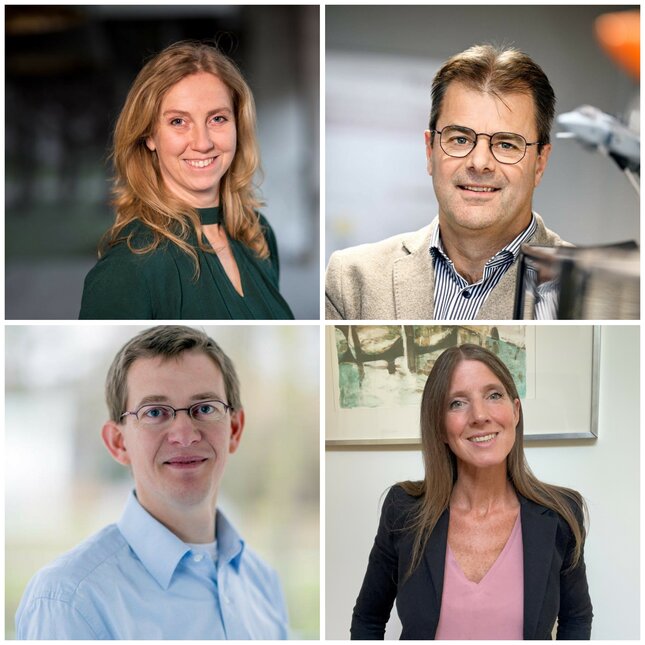
Changes
The composition of that IE&IS departmental board has seen considerable renewal since October 1st. Ingrid Heynderickx stepped down after nine years in the role of dean. On the same date, managing director Eric van der Geer-Rutten-Rijswijk swapped IE&IS for the directorship of Education and Student Affairs (ESA).
Van Houtum moved from his role as vice-dean of Industrial Engineering to become the dean of the whole department. He was replaced by Fred Langerak. “Fred did a great job of replacing me as vice-dean during a sabbatical. He was also closely involved in the self-evaluation we undertook as part of the department's research assessment. He won't need long to familiarize himself with the job.” Yvonne de Kort continues in her present role as vice-dean of Innovation Sciences.
Personally, DISC-wise I'm a bit ‘blue’, and I'm pleased that we board members complement each other.
Geert-Jan van Houtum, dean of IE&IS
The new managing director, Marieke van der Hoeven, took up her post at the end of October. “She's come to us from a Philips research department that was recently shut down. That gave us the chance to recruit an experienced managing director. She enjoys delving into the figures and has good soft skills. Personally, DISC-wise I'm a bit ‘blue’ and I'm pleased she's a good complement to me.”
Cooperation
“Ingrid Heynderickx sounded me out three years ago about whether I'd be interested in succeeding her as dean. That was during a development interview. After giving it some thought, I knew it was what I wanted to do. I've always been in administrative roles and they suit me well. It helps that finding out how and where we can all cooperate is something I find interesting.”
Support
IE&IS was created when two schools, Industrial Engineering and Innovation Sciences, merged. For Van Houtum, this history makes it especially important that his appointment has broad support. “Over the past six years we've all worked hard to make it more of a single entity. And we're still growing closer to each other: we're thinking less in terms of those blood groups. I come from one corner of the department, but want everyone to feel valued and appreciated by me. I want everyone in our department to think of me as their dean.”
Thinking in blood groups is fortunately something we do less and less, we're also much more of a whole.
Geert-Jan van Houtum, dean of IE&IS
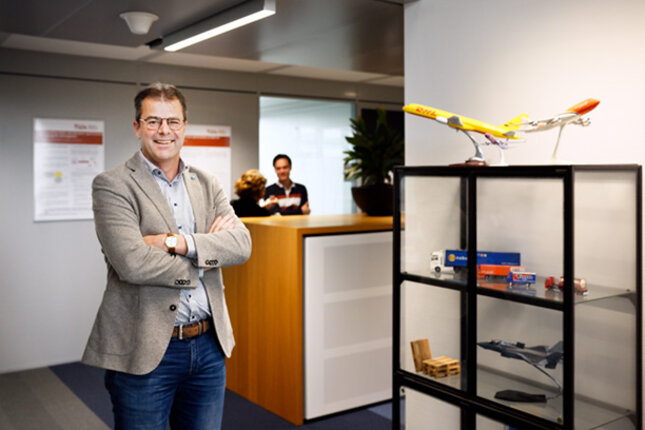
“I have every confidence in the new departmental board, as its members we complement each other very well. We've worked hard in recent years to create a multidisciplinary research climate, and we want to extend that further. As part of that, I want to strengthen our links with companies in Brainport. Our work dovetails with work in the field. I myself do a lot with ASML and other manufacturers of capital assets in the Brainport region.”
“Back when I was studying math - and Brainport didn't yet exist - I was already intrigued by companies here in the region. Sometimes part-time professors would come along to tell us how things were done at Philips, about the problems and solutions they were working on. That was fascinating.”
That powerful companies like Philips and ASML started in this region, I'm proud of that.
Geert-Jan van Houtum, dean of IE&IS
Societal research
Van Houtum, on the research at IE&IS: “Take any one of the major societal issues and changes in which engineering and technology offer a solution, and you're always going to be dealing with people and with ethics. These are the very things we're good at: innovation, business administration, the role of people and ethics.”
“The review committee that visited our department in June confirmed that our research is excellent when it comes to applying it in society. That's why addressing societal challenges in their research is precisely what we encourage our scientists to do. I am proud of the impact that we have with our research.”
Research themes
The Department of Industrial Engineering & Innovation Sciences has four research themes: Humans and Technology, Supply Chain Management, Value of Data-driven Intelligence, and Sustainability and Circularity.
“During its visit, the review committee noted a great many enthusiastic reactions to our research environment, and found a good atmosphere. We've worked hard to achieve these things, and we'd like to continue this positive trend.”
Falling intake
An important task for the IE&IS board is raising student numbers, says Van Houtum. So that the growing demand for engineers from companies in the Brainport region can be met, but also because the master's intake has fallen. For IE, this is a side effect of the decentralized selection introduced a few years ago, explains Van Houtum. Intake dropped from 280 to 170 students, while the ceiling was set at 250.
Under decentralized selection new students have to enroll in January, instead of May. “Many of them aren't even thinking of college in January. They also have to sit a test and then receive a ranking based on that test and their school-leaving exam grades. If they see themselves ranked pretty low, they may think they've no chance and end up not enrolling here after all. I've heard this is an issue for other programs too, and at other universities.”
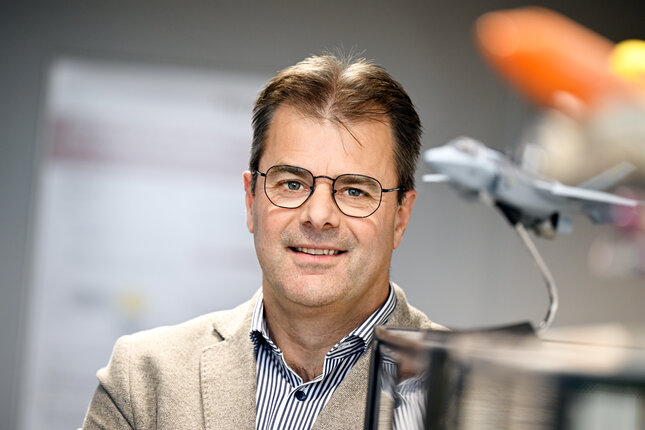
I still stand by the decision to introduce decentralized selection. The work pressure here was too high.
Geert-Jan van Houtum, dean of IE&IS
Despite all this, he still stands by the decision to introduce decentralized selection. “The work pressure on our people was simply too high. Luckily, since then we've been able to recruit more people thanks to the funding we received under the sector plan.”
Master's tracks
“One of our aims as a department in the coming years is to invest more effort in promoting our master's programs, both in the Netherlands and internationally. This involves the important step of converting the masters into master's tracks. This has the advantage of making it much easier to convey what's involved studywise, and which core subjects are included.”
One of these master's tracks is Smart Industry, a combination of the latest production technologies, digitalization and network optimizing within industry. Van Houtum expects it to draw more students to his department. “Smart Industry meshes seamlessly with the growth the Brainport region is experiencing.”
Lineage
Hanging on the wall of his office is a large framed print. A gift to Van Houtum from his doctoral candidates when he gave his inaugural lecture as professor. It shows his academic lineage going back to the thirteenth century. And it leads via his supervisors Jaap Wessels and Henk Zijm in Eindhoven to academics at universities in the Netherlands, Germany, Switzerland and France; with prestigious names like Joseph Fourier, Pierre-Simon Laplace, Christiaan Huygens and Jacob and Johann Bernoulli as Van Houtum's academic forefathers. “Nice, isn't it?” he says, pointing to names among the maze of lines and connections.
Less professorial work
In his role as dean Van Houtum is more the administrator and less the professor. “There's a lot of meetings. I knew that when I applied. I've pared down my work as chair, now I only supervise doctoral candidates. Fortunately there are co-supervisors who can assist the PhDs on a day-to-day basis.”
“I'm proud of the graduates and doctoral candidates I've had in my charge. Many of them have gone on to achieve further success in science. I've continued to work with some of them after they've gained their PhD. I think that says something about the quality of our working partnerships.”
Footsteps
His academic offspring extend to his family: his two daughters are now studying at TU/e. The eldest in the Department of Mechanical Engineering; the youngest is taking Industrial Engineering at the department where her father is now dean. He likes that they are following in his footsteps. “But what's most important to me is that they're doing what they enjoy.”
More on our strategy
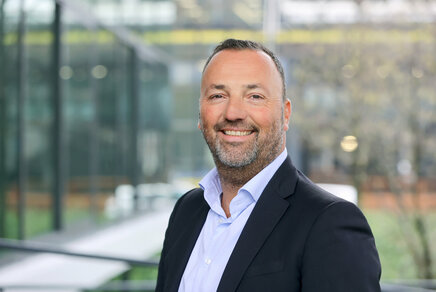

![[Translate to English:] [Translate to English:]](https://assets.w3.tue.nl/w/fileadmin/_processed_/c/f/csm_BvOF_2024_0319_AEV_license_TUe_Dirk_van_Meer_-_CORE_1__c976e259a5.jpg)
